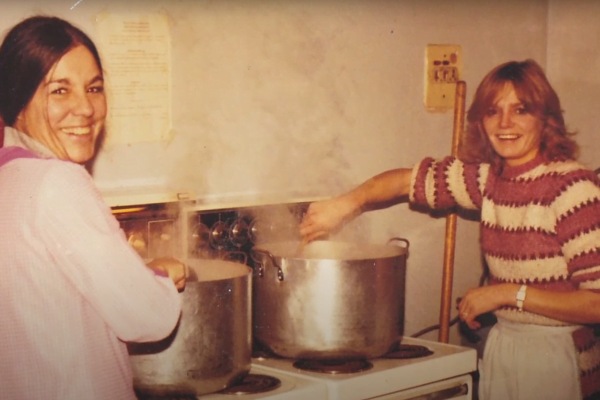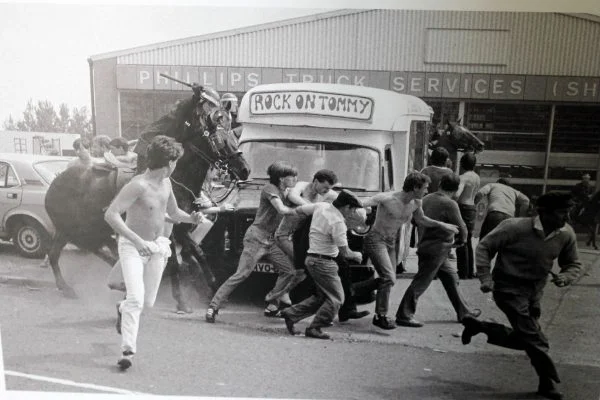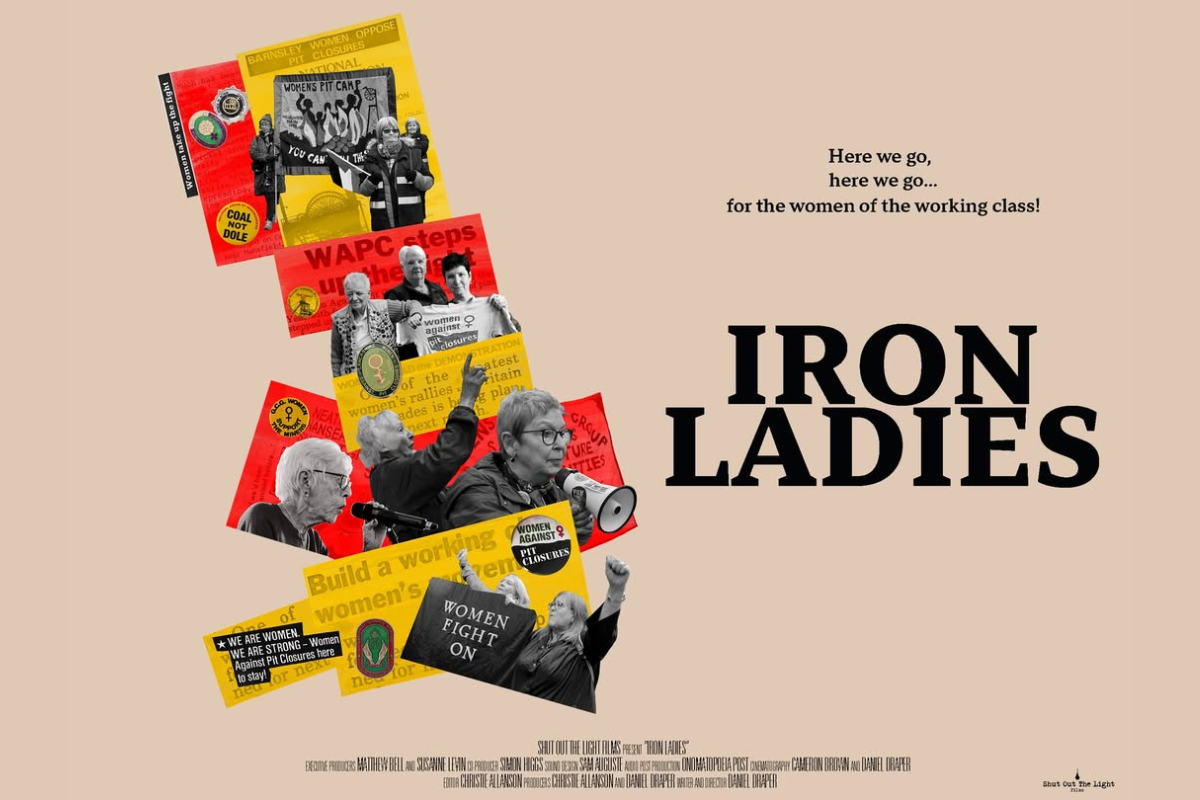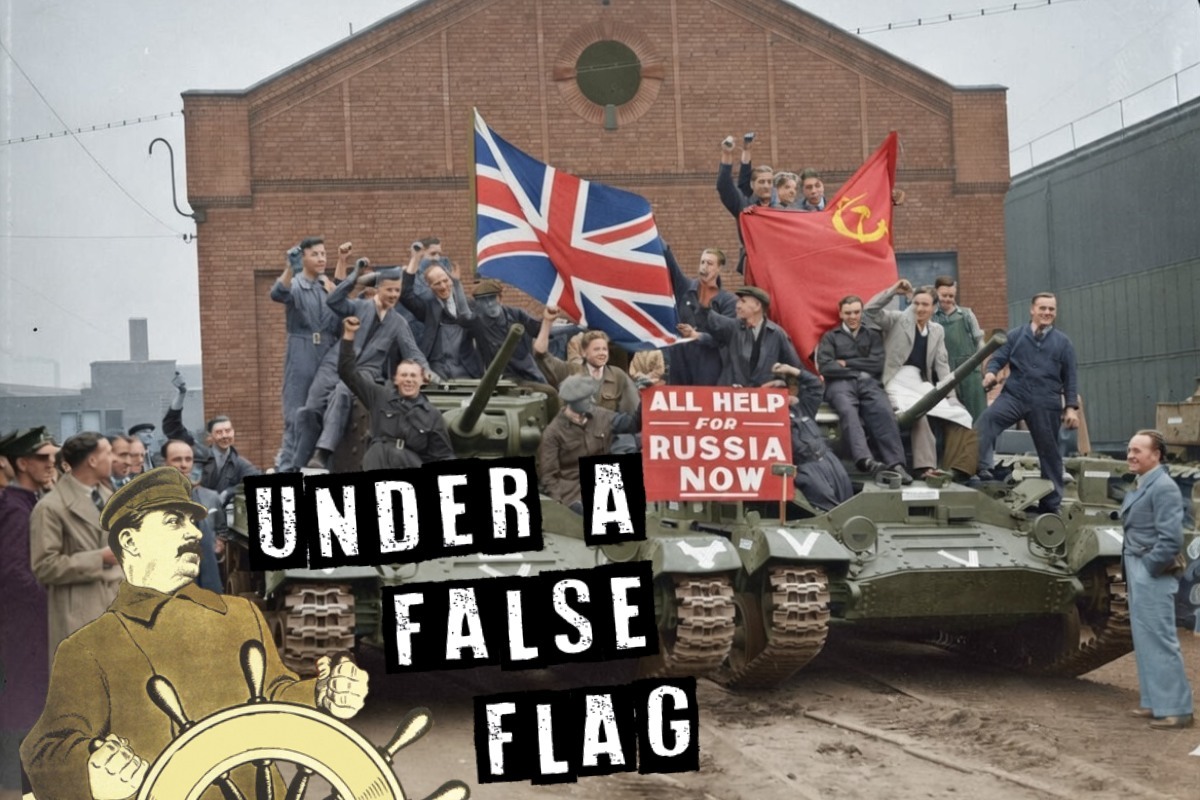Billed as “a celebration of the iron-willed women who maintained the 1984/85 Miners’ Strike as they fought for the future of their communities”, Iron Ladies is a new documentary directed by Daniel Draper, which is currently touring the UK for selected screenings.
It tells the story of women who organised Women Against Pit Closures (WAPC), through interviews with twenty members across the country, interspersed with silent shots of derelict closed pits and scenes of commemorations of the strike 40 years later.
Trotsky once remarked that a revolution is the moment that the working class enters the stage of history.
In this sense, the Miners’ Strike was a revolution in miniature: it politicised the whole of British society, including layers of working women that had no interest in politics until that point. Despite it being their first step into the class struggle, they were among the most militant sections of the movement.

As the strike went on, miners were unable to feed themselves or their family. It was these women who gathered donations and organised canteens to feed their communities.
The call for aid was answered just by the British public, but by the world working class. French workers sent food by the truckload, as did the workers of the Soviet Union, Germany, and South Africa. The miners didn’t recognise the food they received half the time!
The women interviewed pointed out that, although the media at the time were quick to label this a ‘feminist’ movement, they did not consider themselves to be feminists.
One member remarked that that word was associated with the bra-burning middle class at the time. They weren’t fighting for individual empowerment, they were fighting to take control, to feed their children, and to save their communities.

The strike developed into an all-out showdown between the workers and the Thatcher government. As one woman remarked, “this was not a struggle against an employer. We were struggling against the government, and they used their full weight. It was terrifying”.
The state used every weapon available to it. To undercut the massive donations that propped up the striking workers, the courts labelled the strike illegal and seized trade union funds, including those of groups like the WAPC who supported the strike. Undeterred, they started to deal in cash.
Legal manoeuvring wasn’t enough. The workers had to be crushed. Women on the pickets were not spared the wrath of the police. As the documentary points out, it was not a “clash” between police and miners. The miners were savagely attacked by the state’s henchman. One woman, for the crime of making a snarky comment, was beaten so badly she lost a tooth.
The women understood very well the true nature of their struggle; it was class war. In the process of defending their livelihoods and communities, they had transformed themselves from the mothers and wives of men, into the most hardened and heroic class fighters propelling the struggle forward.
Without their support, it was impossible that the strike would have lasted so long. In the course of struggle, they learnt their own strength. There was nothing now that could return them to being mere housewives.
Even when the strike was defeated, many continued campaigning, and were determined to make lives for themselves. Some pursued higher education in college, others gained trade union and political roles.
Iron Ladies expresses the honest sentiment of those who actually participated in the struggle. For that reason, it is a must watch for any budding revolutionary.
A full list of screenings can be found at shutoutthelight.co.uk/iron-ladies






